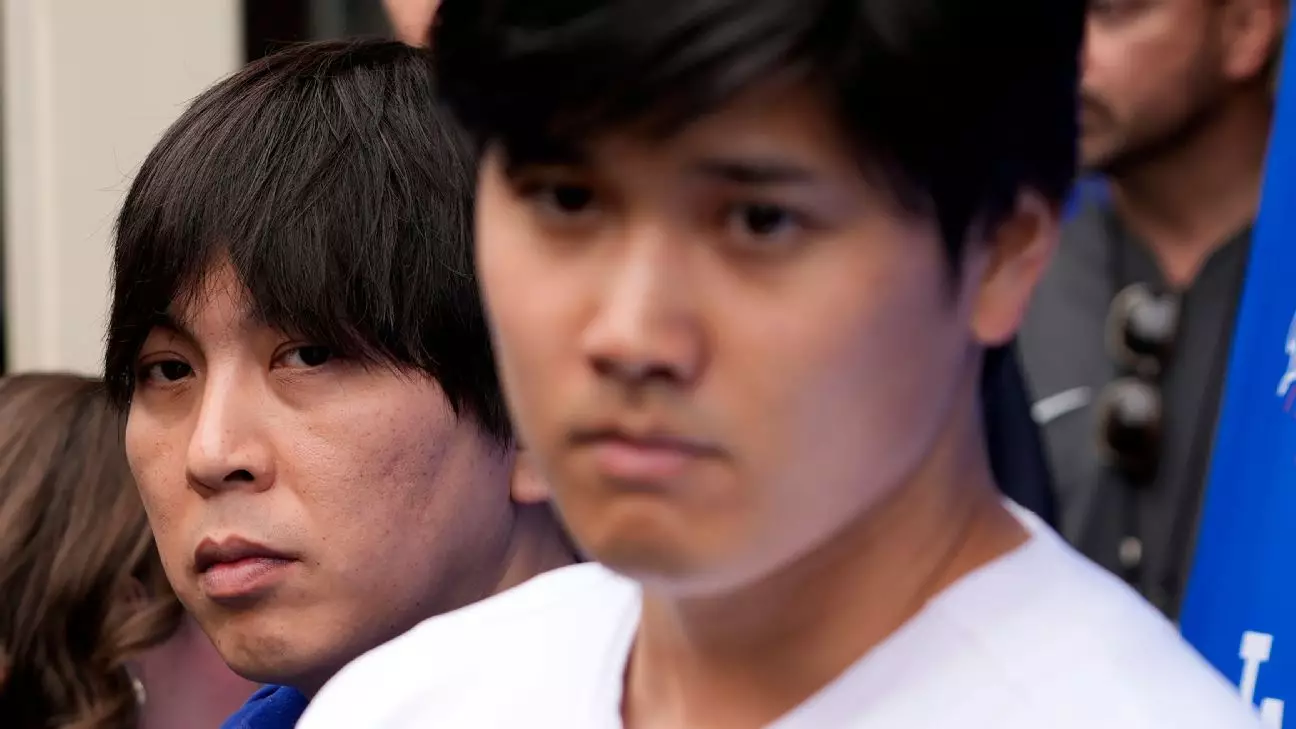In an astonishing turn of events, Shohei Ohtani, the renowned Los Angeles Dodgers star, finds himself embroiled in a legal dispute involving his former interpreter, Ippei Mizuhara. Allegations have emerged that Mizuhara misappropriated Ohtani’s funds to purchase a staggering amount of baseball cards—valued at approximately $325,000—through deceptive means. This case offers a sobering look at how trust, when violated, can lead to devastating financial and personal ramifications.
The Allegations Unveiled
According to court documents, Mizuhara exploited his position to gain unauthorized access to Ohtani’s bank account starting in November 2021. By manipulating security protocols, he impersonated the baseball star, which enabled him to authorize wire transfers without consent. Such security breaches reveal not only a significant lapse in protective measures but also highlight the ease with which trust can be abused.
Mizuhara’s financial misdeeds extend beyond simple embezzlement. He is accused of using Ohtani’s money not only for obtaining collectible cards but also to fund a gambling addiction that spiraled out of control. This behavior paints a picture of a man who, once a trusted confidant, became consumed by personal vices, leading to systemic theft that impacted a burgeoning sports career.
With Mizuhara facing charges of bank fraud and tax evasion, the legal ramifications could be severe. If convicted, he is facing potentially more than 30 years in federal prison and could be responsible for restitution amounts nearing $17 million to Ohtani, as well as additional costs accrued to the IRS. Such heavy penalties resonate deeply, not just for Mizuhara but more importantly for Ohtani, who must grapple with the emotional toll of this betrayal while protecting his legacy and finances.
The impending sentencing in January serves as a reminder of how quickly fortunes can shift, especially in the world of professional sports. Losing a staggering amount of money and facing the possibility of deportation adds further complexity to Mizuhara’s already precarious situation, as he may soon be forced to return to Japan without the life he built in America.
As Ohtani continues to rise in fame—having recently secured his third MVP award and contributing to the Dodgers’ World Series victory—the weight of this betrayal looms large. The very fabric of their relationship, once characterized by camaraderie and support during crucial moments of Ohtani’s career, has been tarnished. Despite the financial losses, the unique aspect of this ordeal is how Ohtani must navigate the emotional landscape of betrayal from someone who played an integral role in his achievements.
Moving forward, Ohtani’s resilience will be tested not only in terms of reclaiming lost assets but also in rebuilding his sense of trust and security, crucial for any athlete at the peak of their career. While legal battles can take time, the process serves to reinforce the necessity of robust financial safeguards, particularly for public figures who may be more susceptible to exploitation.
The saga surrounding Shohei Ohtani and Ippei Mizuhara is a cautionary tale about trust and betrayal in professional sports. As Ohtani seeks restitution for the wrongs inflicted upon him, the broader implications for athletes, agents, and interpreters are clear: vigilance and integrity must be upheld to prevent similar exploitation in the future. It is a painful lesson learned for Ohtani, but one that could pave the way for more stringent measures in protecting athletes from financial misconduct.

